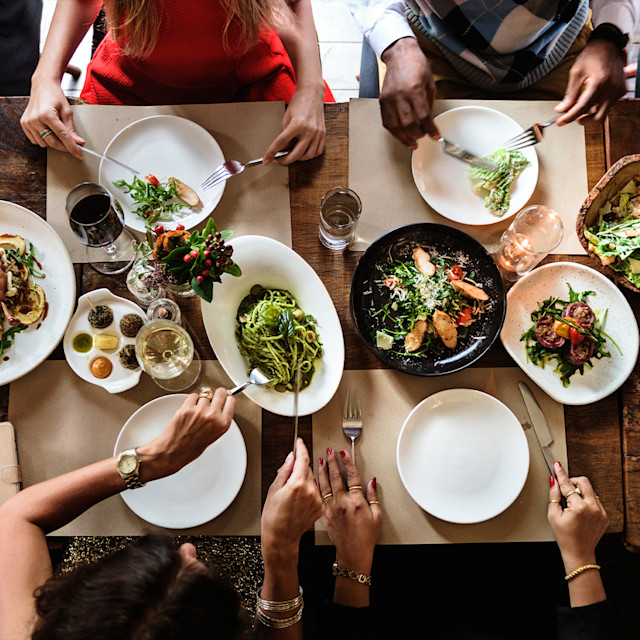When it was first established in the 1930s as a post-Prohibition substitute for the speakeasy, the supper club offered a playful alternative to the stuffy dinner party. In today’s post-pandemic era, a new generation of hosts are reinvigorating the concept with a similarly rebellious undertone, this time emphasizing its role in building human connection in an increasingly digital world.
When Claire Chatinover moved to New York, she found herself in an exciting city but with a limited network of people with whom she could experience it. To fix this, she began to host dinner parties in her Brooklyn home with her partner, Jake Fernberg, with each guest encouraged to bring along a plus-one. This was how she was able to reconnect with an old college friend, Sierra Lai. Together, the trio brainstormed ways they could build on the community that had organically started to grow.
The result was That Dinner Thing, a monthly supper club where tickets are sold in pairs, in an effort to encourage attendees to reach out to their connections, whether that be a friend or someone they wanted to ask on a date. Each iteration is curated around a theme that inspires the menu and the dinner conversation.
“We always start by introducing a question around the theme, which gives everyone something to talk about,” Chatinover explains. "Later on, we invite whoever wants to share their thoughts to do so in a toast. It’s amazing the number of people who feel confident enough to speak in front of people who hours earlier were strangers.”
Reimagining the traditional supper club by tying it into themes or other interests is one way in which founders have been able to form communities of like-minded individuals. Take artist Jess Cochrane and chef Bre Graham’s recently launched dinnerpARTY, a London supper club that kicks off with a life drawing class. But of course, there are those where the love of food is enough to bring strangers together. While San Francisco-based Srishti Jain works as a product manager in tech, she’s always had a love of cooking, hosting elaborate dinners for friends and even running an at-home bakery business. Keen to develop her skills, she launched Srishti’s Supper Club, a monthly event serving a new menu of vegetarian food in her apartment.
“I’ve hosted 10 supper clubs and I’ve gone on to hang out with probably 70 percent of the people who’ve attended, and I’ve seen them hang out with each other, too,” Jain says. “The type of person who’s willing to go for dinner at a stranger’s home already has a certain level of openness, making the possibility for connection even stronger.”
"I’ve gone on to hang out with probably 70 percent of the people who’ve attended, and I’ve seen them hang out with each other, too." - Srishti Jain
Like That Dinner Thing’s culinary lead Fernberg, Jain is not professionally trained, but running the supper club has opened up new opportunities. Today, she also works as a private chef, and regularly receives invitations to host pop-ups around the country, while That Dinner Thing aspires to open a permanent community space with cooking classes for children.
The model also appears to appeal to professionals. At Daylesford, a sustainability-focused estate in the English countryside, the Cookery School’s Head Tutor James Hearfield runs a monthly Chef’s Table event, using the farm’s produce to curate a unique menu for 12 strangers. In Chicago, couple Liz Bendure and Daniel Parker had successfully grown their passion project TXA TXA Club, which hosted pop-ups across the city, when Covid struck. After hosting their first post-lockdown dinner for friends, they decided to open up the next one to strangers, offering 10 places via Instagram. Today, their events can draw 30-40 guests, and are designed to creatively engage with the different spaces in which they’re held.
“For us, food is not only a love language but an artistic medium,” Bendure says. “The idea that we can make a new menu each month to share with a whole new set of strangers means endless possibilities, new connections, and a thousand new sparks to get people excited about connecting over food.”
If you’re inspired to unlock a new side to your city through gathering around a meal, the best place to start is with your own network. Once you start asking, you’ll be surprised to discover the number of your connections who are members or know of a local supper club. Alternatively, consider starting your own to use your culinary skills as a means of forging new connections—as these founders can attest, you’re sure to be nourished by the rewards.
